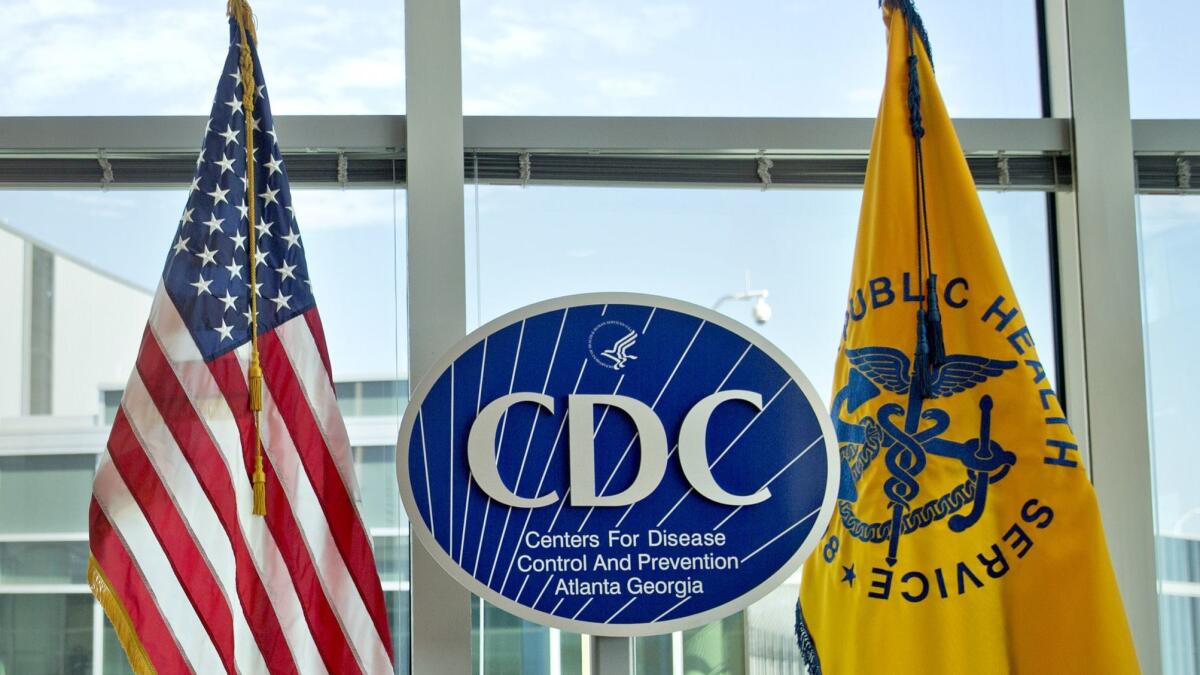Banning seven words at the CDC would have at least seven serious consequences for public health

- Share via
“It’s a beautiful thing, the destruction of words,” George Orwell writes in the fifth chapter of his dystopian novel, “1984.”
Four public health experts from Emory University in Atlanta, just a stone’s throw from the Centers for Disease Control and Prevention, beg to differ.
In an editorial published Monday in the Annals of Internal Medicine, they said it would be “damning, immoral and unacceptable” for CDC officials to act on reported admonitions from the Trump administration to avoid the use of seven words and phrases in the agency’s official budget documents.
The seven targeted terms are “vulnerable,” “entitlement,” “diversity,” “transgender,” “fetus,” “evidence-based” and “science-based.”
If the CDC were to avoid using all of them, it would squander limited resources, erode public trust in its actions and hobble its ability to carry out its central missions, the health specialists wrote. In all, it would be committing at least seven “deadly sins” if those seven words or phrases were expunged from its documents, they wrote.
As reported in the Washington Post, the so-called “forbidden words” were to be avoided in the preparation of CDC’s budget request for 2019, due to be unveiled in early February. Several other agencies inside the Department of Health and Human Services were given similar lists of words to avoid, according to that and other stories.
In lieu of using the terms “science-based” or “evidence-based,” Trump administration budget officials suggested the CDC say its recommendations were based on “science in consideration with community standards and wishes.”
That would not only minimize the role of scientific evidence in formulating priorities, the editorialists opined; it would violate U.S. law. The Plain Writing Act of 2010 requires that all federal agencies “improve the effectiveness and accountability … to the public by promoting clear Government communication that the public can understand and use.”
“Increased use of euphemisms as a workaround in budget documents obfuscates clarity in communication, transparency, and accountability,” wrote Dr. Kenneth G. Castro, Dabney P. Evans, Dr. Carlos del Rio and Dr. James W. Curran, all of Emory’s Rollins School of Public Health.
Some of the targeted words define the very groups that the CDC’s public health campaigns are meant to help. Doing away with them only encourages the misuse or misdirection of limited funds to less needy populations and encourages the use of programs that have been shown not to work, the Emory foursome wrote.
They cited a past congressional mandate to spend one-third of international AIDS prevention funds on abstinence-until-marriage programs, which do not reduce HIV transmission.
They also warned that avoiding references to transgender women, for instance, would overlook a population that is nearly 50 times more likely to be infected with HIV, viral hepatitis and sexually transmitted infections compared with other adults of reproductive age.
The group fretted that the CDC’s avoidance of certain words also could spread to other health agencies, and might even seep into guidelines and policy statements being drafted by professional societies on matters of public health.
For now, the Emory professors’ warnings may not be necessary. In a Facebook post dated Dec. 17 — two days after the Washington Post report on forbidden words emerged — CDC Director Dr. Brenda Fitzgerald assured her employees and the public that the agency had no “banned words.” The agency, she vowed, “will continue to talk about all our important public health programs” and “use the best scientific evidence available to improve the health of all Americans.”
But with scientific terms and data disappearing from other government websites under the Trump administration, the Emory editorialists were in no trusting mood.
“U.S. citizens, elected government representatives, health care practitioners, and professional societies — including the American College of Physicians [the professional society that publishes the Annals of Internal Medicine] — must remain vigilant to ensure that such limitations on language are prevented,” they wrote. The world’s trust in the CDC’s leadership and scientific integrity hangs in the balance, they added.
MORE IN SCIENCE
Why the United States is ‘the most dangerous of wealthy nations for a child to be born into’
2017 was a hot and disaster-filled year for the United States, NOAA says
In rural China, calling someone a ‘witch’ has serious social consequences







